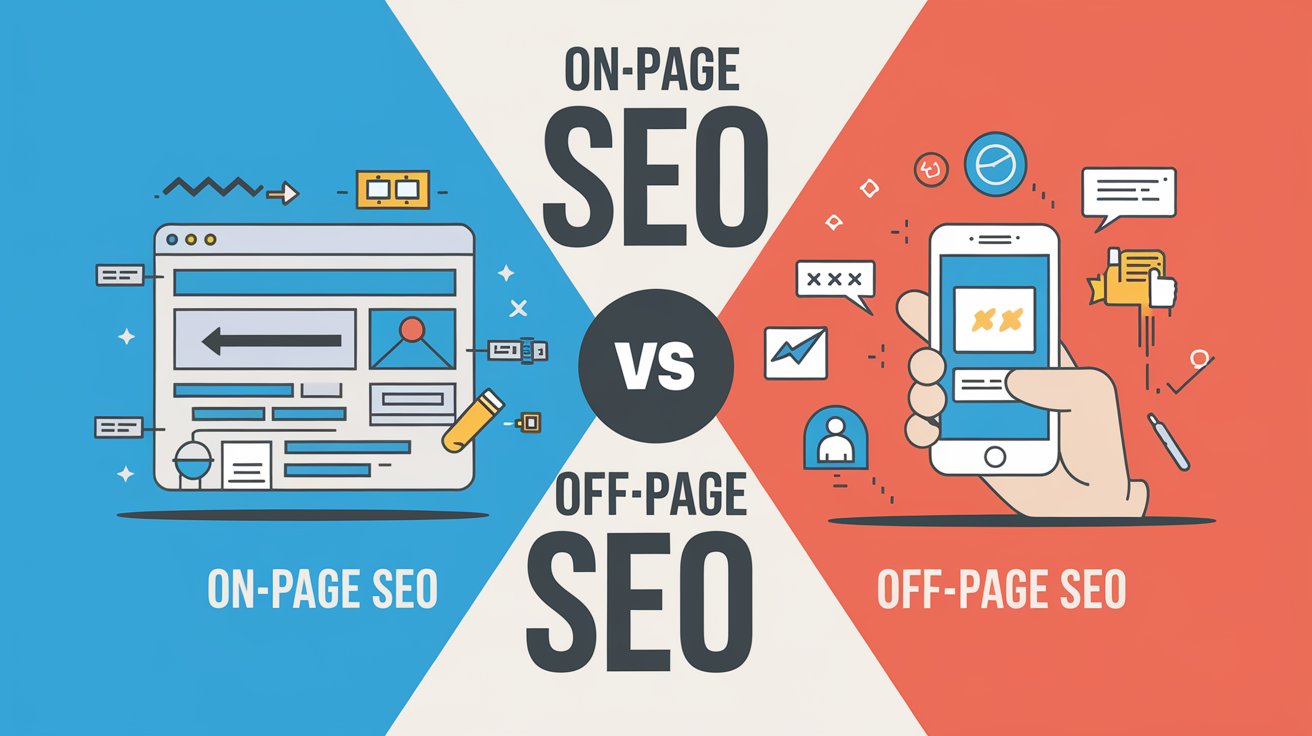Search Engine Optimization (SEO) plays a crucial role in improving website rankings and driving organic traffic. However, SEO is divided into two main categories: On-Page SEO and Off-Page SEO. Understanding their differences can help businesses optimize their websites effectively. Let’s explore both in detail.
What is On-Page SEO?
On-Page SEO refers to the optimization techniques applied directly to a website’s content and structure to improve its visibility on search engines. These factors are within the website owner’s control and focus on enhancing user experience and relevance.
Key Elements of On-Page SEO
- Keyword Optimization – Using relevant keywords in titles, headings, meta descriptions, and content to improve rankings.
- Content Quality – Creating valuable, informative, and engaging content that answers user queries.
- Title Tags & Meta Descriptions – Writing compelling titles and descriptions to improve click-through rates.
- URL Structure – Keeping URLs short, descriptive, and keyword-rich.
- Internal Linking – Connecting relevant pages within the website to improve navigation and authority.
- Image Optimization – Using alt text and compressing images to enhance page speed and accessibility.
- Mobile-Friendliness – Ensuring the website is responsive and accessible across different devices.
- Page Speed Optimization – Improving load times through caching, compression, and optimized coding.
- Schema Markup – Adding structured data to enhance search engine understanding of content.
What is Off-Page SEO?
Off-Page SEO involves strategies that improve a website’s authority and reputation outside of its own domain. These techniques help search engines recognize a site’s credibility and trustworthiness through external factors.
Key Elements of Off-Page SEO
- Backlink Building – Acquiring high-quality links from authoritative websites to boost rankings.
- Social Media Engagement – Promoting content on social platforms to drive traffic and increase brand visibility.
- Guest Blogging – Writing articles for other websites to gain backlinks and exposure.
- Brand Mentions – Getting recognized by other websites without direct backlinks.
- Influencer Marketing – Collaborating with influencers to enhance brand credibility.
- Forum Participation – Engaging in industry-related forums and communities to share expertise.
- Local SEO – Optimizing Google My Business listings, citations, and customer reviews for local searches.
Key Differences Between On-Page and Off-Page SEO
| Factor | On-Page SEO | Off-Page SEO |
|---|---|---|
| Control | Fully controlled by website owner | Influenced by external sources |
| Focus | Content, structure, and user experience | Website authority and credibility |
| Optimization Methods | Keyword usage, meta tags, page speed, internal linking | Backlinks, social signals, brand mentions |
| Goal | Improve relevance and usability for search engines and users | Build trust and authority to improve rankings |
Which One is More Important?
Both On-Page and Off-Page SEO are essential for a successful SEO strategy. On-Page SEO ensures your website is optimized for search engines and users, while Off-Page SEO builds credibility and authority. A balanced approach that includes both will yield the best results in improving rankings and driving traffic.
Final Thoughts
Understanding the differences between On-Page and Off-Page SEO can help you create a well-rounded SEO strategy. By focusing on optimizing website content and structure while also building authority through external sources, businesses can achieve higher search engine rankings and long-term online success.
Are you ready to enhance your SEO strategy? Start by optimizing your website with On-Page SEO techniques and then expand your reach with Off-Page strategies!
